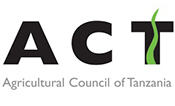BETTER FARM BETTER LIVES was an initiative promoted by Bayer AG and implemented by the Agricultural Council of Tanzania (ACT) in collaboration with AGRA in 29 districts of the Tanzania mainlaAs a result of the COVID-19 pandemic, the goal of this project was to help smallholder farmers overcome hunger and ensure food security at the household level. Bayer was committed to donate 200 mt of maize seeds and 108 kg of vegetable seeds under this initiative, popularly known as Better Farms Better Lives. The initiative aimed to reach about 115,000 Smallholder Farmers (100,000 maize producers and 15,500 vegetable producers).
The project duration covered the period from December 2020 up to April 2021 but was extended to July 2021. The main implementation partners on the ground were coordinated by ACT. Local partners included Local Government Authorities (LGAs), CSOs and the private sector. Bayer AG financed the initiative with USD 256,000.
The BFBL project was implemented in 22 districts on Tanzania's mainland. The project came to an end in July 2021 with remarkable achievements. It had reached approximately 100,000 smallholder farmers (90%) by redistributing 183.024 metric tons of maize seed to 84,632 SHF's (34,634 females) and 14,540 veggie kits (tomatoes 8,740 and cabbage 5,800) to 6,604 SHF's (2,495 females) in all targeted districts. The positive outcomes of the BFBL project have clearly been visible among the smallholders who have benefited from the project directly or indirectly. There is increased well-being and prosperity among smallholder farmers in the project areas but these aspects would better be captured in an ex-post evaluation.
BFBL's initial assessment regarding food security focused on white maize which is the main staple grain consumed in Tanzania. Approximately 80 percent of dietary calories and over 35 percent of utilizable protein are provided by corn (USDA Tanzania corn report, 2019). The annual per capita consumption is estimated to be 135 kg per person per year. Thus, an average household of 5 members requires approximately 675kg of grains for direct consumption to meet its requirements for a year. The relative contribution of the BFBL program to household food security was measured in terms of the total harvest level per household. Food security levels in various districts ranged from 40% to about 78% which is quite significant

